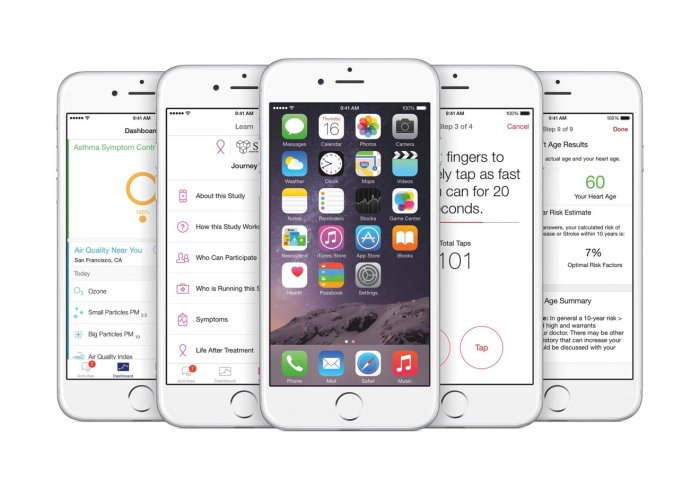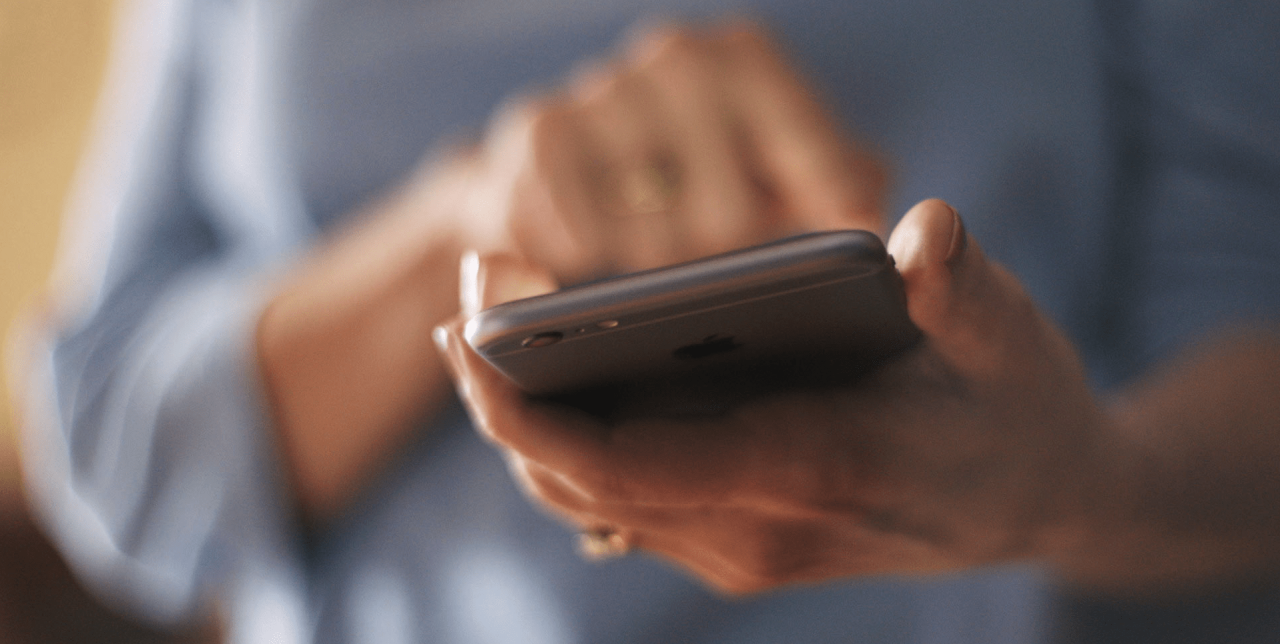Introduction to Apple ResearchKit
Apple ResearchKit is a software framework that empowers medical researchers to create mobile apps for collecting health data from participants. It provides a standardized set of tools and features for building research-grade applications that can be used to gather information on various health conditions and factors.
The purpose of ResearchKit is to accelerate medical research by leveraging the power of mobile technology and making it easier for researchers to recruit participants, collect data, and analyze results. Its goal is to improve the quality and efficiency of medical research, ultimately leading to better treatments and cures for diseases.
History of ResearchKit
Apple ResearchKit was first launched in 2015, with the initial focus on building apps for specific health conditions such as Parkinson’s disease, asthma, and diabetes. Since then, the framework has evolved significantly, expanding its capabilities and applications to encompass a broader range of medical research areas.
ResearchKit’s development has been driven by collaborations with leading medical institutions and researchers worldwide. The framework has been used to conduct numerous research studies, gathering valuable data on a wide range of health conditions and factors. This data has contributed to advancements in medical understanding and the development of new treatments.
Features and Capabilities of ResearchKit
ResearchKit is a powerful toolkit that empowers medical researchers to conduct innovative research studies using the iPhone. This open-source framework offers a range of features and capabilities that streamline the research process, enabling researchers to collect, analyze, and manage data more effectively.
Data Collection
ResearchKit provides a user-friendly platform for collecting data from participants. This is achieved through a combination of tools and features:
- Surveys and Questionnaires: Researchers can create interactive surveys and questionnaires to gather information on demographics, health history, symptoms, and experiences. These can be tailored to specific research needs and presented in a clear and engaging manner.
- Active Tasks: ResearchKit enables researchers to collect data beyond traditional surveys. This includes tasks such as:
- Motion Data: Researchers can use the iPhone’s built-in sensors to capture data on movement, posture, and gait. This is valuable for studying conditions like Parkinson’s disease or balance disorders.
- Audio Recordings: ResearchKit can capture audio recordings from participants, which can be used for speech analysis, vocal assessments, or studying conditions like asthma.
- Cognitive Tests: Researchers can design and administer cognitive tests, such as memory tasks, attention tests, and reaction time tests, using the iPhone’s touch screen and other features.
- Visual Tasks: ResearchKit allows for the collection of data related to vision, such as color perception, depth perception, and visual acuity.
- Biometric Data: ResearchKit can access biometric data collected by the iPhone, such as heart rate, sleep patterns, and blood pressure (when connected to compatible devices). This provides researchers with valuable insights into physiological processes and their relationship to health outcomes.
Data Analysis
ResearchKit simplifies data analysis by providing researchers with tools to process and analyze the collected data.
- Data Export: ResearchKit allows researchers to export data in standard formats, such as CSV and JSON, making it compatible with various statistical analysis software packages.
- Data Visualization: Researchers can use ResearchKit to visualize data in interactive charts and graphs, providing insights into trends, patterns, and relationships.
- Data Aggregation: ResearchKit facilitates the aggregation of data from multiple participants, enabling researchers to analyze large datasets and identify significant trends.
Data Management
ResearchKit emphasizes secure and responsible data management.
- Data Security: ResearchKit adheres to strict privacy and security standards, ensuring that participant data is collected and stored securely.
- Data Anonymization: ResearchKit allows researchers to anonymize participant data, protecting individual privacy while facilitating data analysis.
- Data Access Control: ResearchKit provides researchers with fine-grained control over data access, ensuring that only authorized individuals can view and analyze the data.
ResearchKit’s Impact on Medical Research
ResearchKit has significantly impacted the landscape of medical research, empowering researchers to collect data from a vast and diverse population with unprecedented speed and efficiency. This platform has enabled researchers to conduct studies that were previously impossible or highly impractical, leading to groundbreaking discoveries and advancements in healthcare.
Successful Medical Research Projects Using ResearchKit
ResearchKit has been instrumental in numerous successful medical research projects, demonstrating its potential to accelerate medical breakthroughs.
- The mPower Study: Led by the University of Rochester Medical Center, this study utilizes ResearchKit to gather data from individuals with Parkinson’s disease. The study has collected data from over 17,000 participants, providing valuable insights into the progression of the disease and the effectiveness of different treatment options. This data has led to the development of new diagnostic tools and potential treatments for Parkinson’s disease.
- The MyHeart Counts Study: This study, led by Stanford University, uses ResearchKit to collect data on heart health, including heart rate variability, sleep patterns, and physical activity levels. The study has enrolled over 100,000 participants, providing researchers with a wealth of data on cardiovascular health and its risk factors. The insights gained from this study are being used to develop personalized interventions to improve heart health.
- The Asthma Health Study: This study, led by the University of California, San Francisco, uses ResearchKit to collect data from individuals with asthma. The study has enrolled over 20,000 participants, providing researchers with valuable insights into the triggers and symptoms of asthma. The data collected through this study is being used to develop new treatments and management strategies for asthma.
ResearchKit’s Role in Data Privacy and Security: Apple Researchkit Available To Medical Researchers
ResearchKit is designed to be a secure and privacy-focused platform for medical research. It employs a range of measures to safeguard user data, ensuring that participants’ privacy is protected while valuable data is collected for research purposes.
Data Privacy Measures
ResearchKit prioritizes data privacy by implementing various measures. Here’s a breakdown of how it ensures data is handled responsibly:
- Data Encryption: All data collected through ResearchKit is encrypted both during transmission and storage. This ensures that the data is unreadable to unauthorized individuals, even if it’s intercepted.
- Data Anonymization: ResearchKit allows for data anonymization, meaning that personal identifiers such as names and contact information are removed from the data before it’s shared with researchers. This makes it difficult to identify individual participants, further protecting their privacy.
- Data Access Control: Researchers only have access to the data they need for their specific research project. They can’t access other participants’ data or personal information. This limits the potential for misuse or unauthorized access to sensitive data.
- Informed Consent: Before participating in a ResearchKit study, users are presented with an informed consent form that clearly Artikels how their data will be used, stored, and shared. This ensures that participants are aware of the risks and benefits of participating in the study.
- Data Ownership: Participants retain ownership of their data and can choose to withdraw their participation at any time. This means that their data can be deleted from the research study, giving them control over their personal information.
Security Protocols, Apple researchkit available to medical researchers
ResearchKit employs robust security protocols to protect the integrity of the data collected:
- Secure Sockets Layer (SSL): ResearchKit uses SSL encryption to secure the communication between the app and the research servers. This prevents unauthorized access to the data being transmitted.
- Authentication and Authorization: Access to ResearchKit data is controlled through authentication and authorization mechanisms. This ensures that only authorized individuals, such as researchers and data analysts, can access the data.
- Regular Security Audits: ResearchKit undergoes regular security audits to identify and address any potential vulnerabilities. This helps maintain the security of the platform and the data it collects.
Ethical Considerations
Data privacy in the context of ResearchKit raises several ethical considerations:
- Transparency and Informed Consent: It’s crucial to ensure that participants are fully informed about the research study, including the potential risks and benefits, and that they provide informed consent before participating. This transparency is vital for ethical data collection.
- Data Ownership and Control: Participants should have the right to access, modify, or delete their data. They should also be informed about how their data is being used and have the option to withdraw their participation at any time.
- Data Security and Confidentiality: The data collected through ResearchKit should be stored and protected securely, ensuring that it is not accessible to unauthorized individuals. This confidentiality is essential to protect participants’ privacy and ensure the integrity of the research.
- Data Use and Sharing: It’s important to have clear guidelines for data use and sharing. Data should only be used for the intended research purposes and should not be used for commercial gain or other unauthorized purposes.
Future of ResearchKit in Medical Research
ResearchKit has already revolutionized the way medical research is conducted, empowering researchers to collect data from large and diverse populations. As technology continues to advance, ResearchKit is poised to play an even more significant role in the future of medical research, with the potential to unlock new discoveries and accelerate the development of treatments and cures.
Potential Applications of ResearchKit in Medical Research
ResearchKit’s future applications are vast and exciting, with the potential to transform various aspects of medical research. Here are some potential applications:
- Personalized Medicine: ResearchKit can facilitate the collection of large-scale, longitudinal data on individual patients, enabling researchers to develop personalized treatments based on an individual’s genetic makeup, lifestyle, and medical history. For example, a ResearchKit app could collect data on a patient’s sleep patterns, diet, and exercise habits, allowing researchers to tailor treatment plans for conditions like diabetes or heart disease.
- Early Disease Detection: ResearchKit can be used to develop apps that screen for early signs of disease, potentially leading to earlier diagnosis and treatment. For example, a ResearchKit app could collect data on a patient’s voice, gait, or cognitive function to identify early signs of Parkinson’s disease or Alzheimer’s disease.
- Remote Patient Monitoring: ResearchKit can enable researchers to remotely monitor patients’ health status, providing valuable insights into disease progression and treatment effectiveness. For example, a ResearchKit app could track a patient’s heart rate, blood pressure, and medication adherence, allowing researchers to monitor their condition and adjust treatment plans as needed.
- Clinical Trial Recruitment: ResearchKit can help researchers recruit participants for clinical trials more efficiently by reaching a wider audience through mobile apps. For example, a ResearchKit app could be used to screen potential participants for a clinical trial, allowing researchers to identify individuals who meet the eligibility criteria.
Apple researchkit available to medical researchers – ResearchKit has opened up a new frontier in medical research, bridging the gap between researchers and the public. It’s a testament to the power of technology to democratize access to knowledge and accelerate progress. With its ability to streamline data collection, enhance research efficiency, and engage a wider pool of participants, ResearchKit holds immense potential for driving groundbreaking discoveries and ultimately improving the lives of countless individuals. The future of medical research is bright, and ResearchKit is poised to play a pivotal role in shaping that future.
Apple ResearchKit, a platform that empowers medical researchers to collect data from iPhone users, is making waves in the healthcare world. While this exciting development is taking place, OnePlus has resumed sales of their popular OnePlus 3 smartphone in several countries , making it easier for tech enthusiasts to get their hands on this powerful device. Meanwhile, the potential of ResearchKit to accelerate medical breakthroughs continues to grow, paving the way for a healthier future.
 Standi Techno News
Standi Techno News

